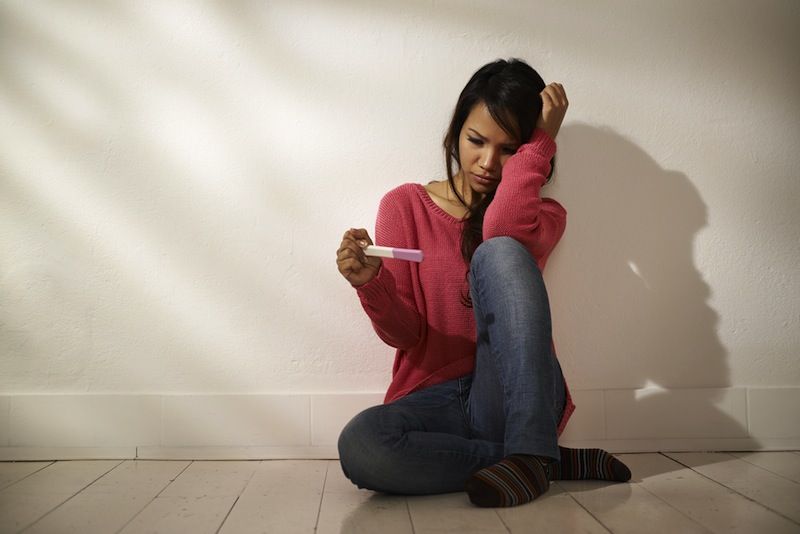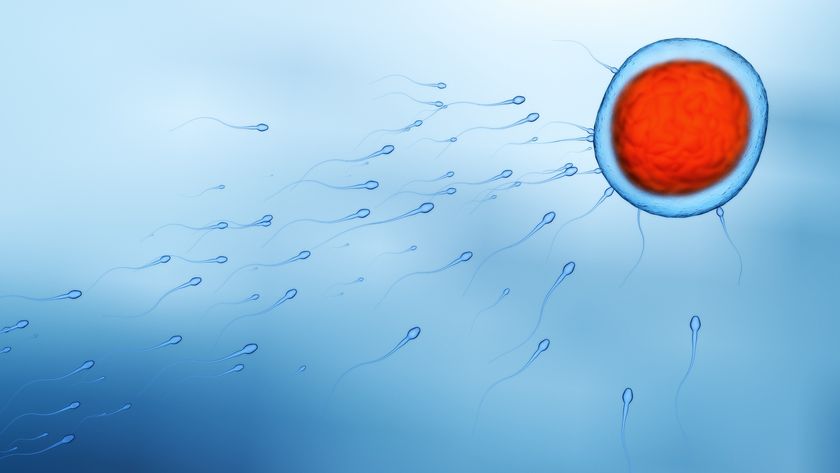Most Women Who Have Abortions Don't Regret Them

Editor's note: As of August 4, 2022, the constitutional right to abortion has been eliminated in the U.S. following the Supreme Court's decision to overturn Roe v. Wade on June 24, 2022. This article was published on July 15, 2015, and therefore the legal information is no longer accurate.
The idea that women may regret having an abortion has been used to support restrictions against the procedure. But a new study suggests that only very rarely do women regret having an abortion.
Researchers looked at 667 women who had abortions between 2008 and 2010 at 30 U.S. clinics. The participants answered questions about their experiences every six months for three years after the procedure. The study found that 99 percent of the women said that they felt they made the right choice in terminating their pregnancies, up to three years afterward, according to the findings published July 8 in the journal PLOS ONE.
"Claims that women suffer from psychological harm from their abortions, and that large proportions of women come to regret their abortions over time, at least in these data, are simply not true," said study researcher Corinne Rocca, an epidemiologist at the University of California, San Francisco.
Post-abortion emotion
The notion of abortion regret is often cited in legislation requiring that women undergo mandatory ultrasounds or waiting periods before an abortion. The concern has risen to the level of the Supreme Court: In 2007, Justice Anthony Kennedy wrote a majority opinion upholding the federal ban on a procedure sometimes called partial-birth abortion, and used the possibility of regret to support the court's decision. "It seems unexceptionable to conclude some women come to regret their choice to abort the infant life they once created and sustained," Kennedy wrote. [8 Supreme Court Decisions that Changed US Families]
—Abortion laws by state: https://reproductiverights.org/maps/abortion-laws-by-state/
—For questions about legal rights and self-managed abortion: www.reprolegalhelpline.org
—To find an abortion clinic in the US: www.ineedanA.com
—Miscarriage & Abortion Hotline operated by doctors who can offer expert medical advice: Available online or at 833-246-2632
—To find practical support accessing abortion: www.apiarycollective.org
But the actual emotional experiences of women after abortions were less well-studied than the political debate has suggested, Rocca said.
Sign up for the Live Science daily newsletter now
Get the world’s most fascinating discoveries delivered straight to your inbox.
"People make arguments about emotions, but actually we have not had good data examining these questions to date," she told Live Science.
Most studies that have followed up with women after they have had an abortion have been short-term studies, and they have found mixed emotions — but predominantly relief — after the procedure. Most longer-term studies have been retrospective, asking women to look back at their abortion experiences months or years later. Retrospective studies often return unreliable information, because people have a hard time remembering how they felt in the past without their current emotions biasing their memories.
A few studies have followed women prospectively, meaning the women were enrolled in the study at the time of the abortion, and then called later to give real-time updates about their emotional experiences. Those studies have generally found that women are satisfied with the decision, but returned mixed results about whether women's emotions about the procedure were positive or negative over time.
Rocca and her team used data from the Turnaway Study, a project that compares women who obtain abortions with women who hit the time limits for having an abortion and were turned away.
The study is still ongoing, and the women will be followed for at least five years total so researchers can detect emotional trends over time, Rocca said.
"No study has been done like this in the United States in the past couple of decades," she said.
Few regrets
Every six months, the women were asked whether they felt their decision to have an abortion was the right choice. They were also asked about positive and negative emotions, including relief, happiness, regret, guilt, sadness and anger. Women may experience a mix of positive and negative emotions around an abortion, and these emotions may or may not influence whether they feel they made the right choice, the researchers said.
In the raw data, 95 percent of the women reported they'd made the right choice to have an abortion in each of the follow-up surveys. This number isn't entirely accurate, because some women didn't answer every survey, and it doesn't take into account individual variation over time, Rocca said. After statistical adjustment to account for these factors, the researchers found that more than 99 percent of women reported having made the right decision at every follow-up.
Women also reported that their emotions about the abortion became less intense as time went on, and also that they thought about the abortion less frequently with time. At three years out, women reported thinking about the abortion only "rarely," Rocca said.
"Relief remains the most dominant emotion felt at every time period over the three years after the abortion," she said.
The research also hints at what factors might make women feel more regret about the choice to have an abortion. Women who struggled more with the initial decision and those with a greater desire to be pregnant were more likely to say that abortion was the wrong choice for them. Women who felt that their community stigmatized abortion and women without much social support reported more negative emotions around the procedure.
The findings do not justify restrictions like waiting periods in the name of protecting women from emotional harm after an abortion, Rocca said.
"I don't want to voice a strong opinion about policy," she said. "I just want it to be based in science."
Follow Stephanie Pappas on Twitter and Google+. Follow us @livescience, Facebook & Google+. Original article on Live Science.
This article was updated on August 4, 2022 by Live Science contributor Alice Ball following the Supreme Court's decision to overturn Roe v. Wade on June 24, 2022. This decision eliminated the constitutional right to abortion that was established by the 1973 court case and later affirmed by a 1992 case called Planned Parenthood of Southeastern Pennsylvania v. Casey.

Stephanie Pappas is a contributing writer for Live Science, covering topics ranging from geoscience to archaeology to the human brain and behavior. She was previously a senior writer for Live Science but is now a freelancer based in Denver, Colorado, and regularly contributes to Scientific American and The Monitor, the monthly magazine of the American Psychological Association. Stephanie received a bachelor's degree in psychology from the University of South Carolina and a graduate certificate in science communication from the University of California, Santa Cruz.











